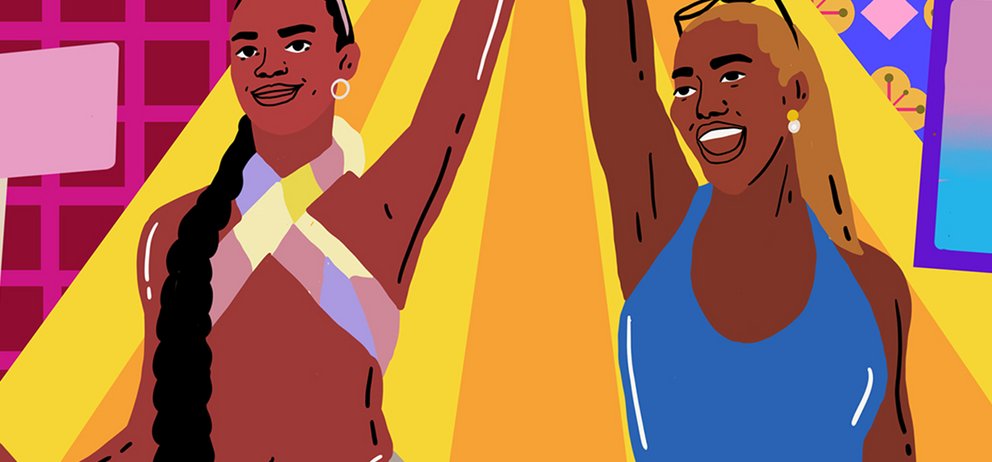he Gathering took place from 6/30-7/23 at HAU1 and HAU3 and gathered prominent feminists, researchers, and cultural practitioners - Latin American collectives, Kurdish, Iranian, and North African liberation movements, as well as queer and transfeminist positions - through a collective curatorial process in round tables, workshops, the "Roda de Conversas" WORLD CAFÉ, and an assembly. The selection from the following 4 round tables offers a glimpse into the Gathering.
Beyond Equality: Feminisms Reclaiming Life
Part of “¡PROTAGONISTAS! Resistance Feminisms Revolution”
Part of “Beyond Equality: Feminisms Reclaiming Life. An Internationalist Gathering”
Round Table: “Transnational feminisms: the desire to change everything”
With: Verónica Gago, Parvin Ardalan, Dilar Dirik, Erica Malunguinho / Moderation: Elif Sarican
english

portuguese

From the Kurdish “World Women's Democratic Confederalism”, to the mobilizing power of the Women's Strike in Argentina, the experiences of Transfeminism occupying parliamentary positions in Brazil and the feminist lead revolution in Iran: these movements challenge oppressive systems with the desire to change everything. The debate aims at sharing and learning from each other's experiences as well as pointing out common grounds and differences, in order to reshape transnational feminist strategies for changing the very fabric of our world.
Round Table: “Against Capitalism and its extractivisms: From Community Feminisms to the Territorial Cuerpo-Tierra from Territorial Community Feminism and agroecology in Abya Yala (Latin America)”
With: Lorena Kab'nal, Carmen Cariño, Miriam Nobre, Louise Wagner / Moderation: Barbara Marcel, Camila Nobrega
english

german

spanish

The primitive accumulation of capitalism was only possible due to the exploitation of the colonial project of Eurocentric growth, combined with the intersection of extraction of (un)paid labor from feminized bodies. How can knowledges such as Agroecology, ecofeminisms, territorial communitarian feminism, Indigenous and Afrolatinoamerican feminisms, and struggles linked to peasant, worker, non-cis-heteropatriarchal movements confront the existing monocultural worlds? The debate will address pluriversal paths of possible connections between feminist struggles and the right to territories and livelihoods from nondominant perspectives of buen vivir.
Round Table: “Neoliberalism & authoritarianism connected: Gendered Violence – how to fight back” (co-or- ganised by IRGAC-RLS)
With: Evren Savci, Luci Cavallero, Ewa Majewska, Eva von Redecker / Moderation: Firoozeh Farvardin
englisch

deutsch

spanisch

Anti-feminist politics have become the cornerstone of current neoliberal authoritarian regimes across the globe. Neoliberalism, though in different fashions, has gone hand in hand with the rise of authoritarian rule, far-right movements and religious conservatism, e.g. in Turkey, Argentina, Brazil or Poland. In these contexts the conjunction between neoliberalism and authoritarianism has intensified gender violence in various forms, for example as anti-abortion laws, anti-trans politics, state femicide or gendered impoverishment. The debate discusses the key strategies of each context for resisting various forms of exploitation of our bodies and of the extraction of vital resources. How do we reclaim life, despite increased neoliberal repressions?
Round Table: “Feminism and the New Right: Resisting “divide and rule” – on the continuities of antiracism and feminism in migrant struggles in Europe"
With: Simone Dede Ayivi, Encarnación Gutiérrez-Rodríguez, Sabine Hark, Jamile da Silva e Silva / Moderation: Bafta Sarbo
*****
Aufgrund von technischen Problemen beginnt die Übersetzung erst ab Minute 1:15.
Due to technical problems, the translation does not start until minute 1:15.
Debido a problemas técnicos, la traducción sólo comienza a partir del minuto 1:15.
englisch

deutsch

spanisch

Anti-migration rhetoric fueled by a renewed nationalism has been a defining issue for the new right in Germany. Within the past decade right wing movements raised concern for women’s safety as a key argument against migrants coming to Germany. These movements have been directly or indirectly supported by a conservative branch of feminism that positions migrant men as a threat to German and migrant women. How can feminist and antiracist movements resist this divide and rule?
Iranian feminist revolutionaries, Latin American “mulherismo”, Kurdish “women’s liberation” movements, and similar feminist approaches do not – as liberal and predominantly Western feminist agendas do – restrict themselves to demands for equal shares in the eroding paradigm of the current toxic way of life. Instead, they understand patriarchy to be intersectionally intertwined with extractivism, state violence, and capitalism. For those struggles, mostly originating in the South, feminism is more than a quest for equality or individual empowerment – it is a political project that aims at social justice and structural transformation: decolonization and planetary care work, political sovereignty, socialization of social reproduction, and revolutionary democratization of the everyday.
Between June 30 and July 2, the gathering assembled prominent feminist movements, researchers, and cultural workers – Latin American collectives, Kurdish, Iranian, and North African liberation movements, as well as queer and trans-feminist positions – through a collective curatorial process. Here you can find a selection of video recordings.
Credits
Funded by: Allianz Foundation. In cooperation with: Rosa Luxemburg Foundation, medico international e.V.